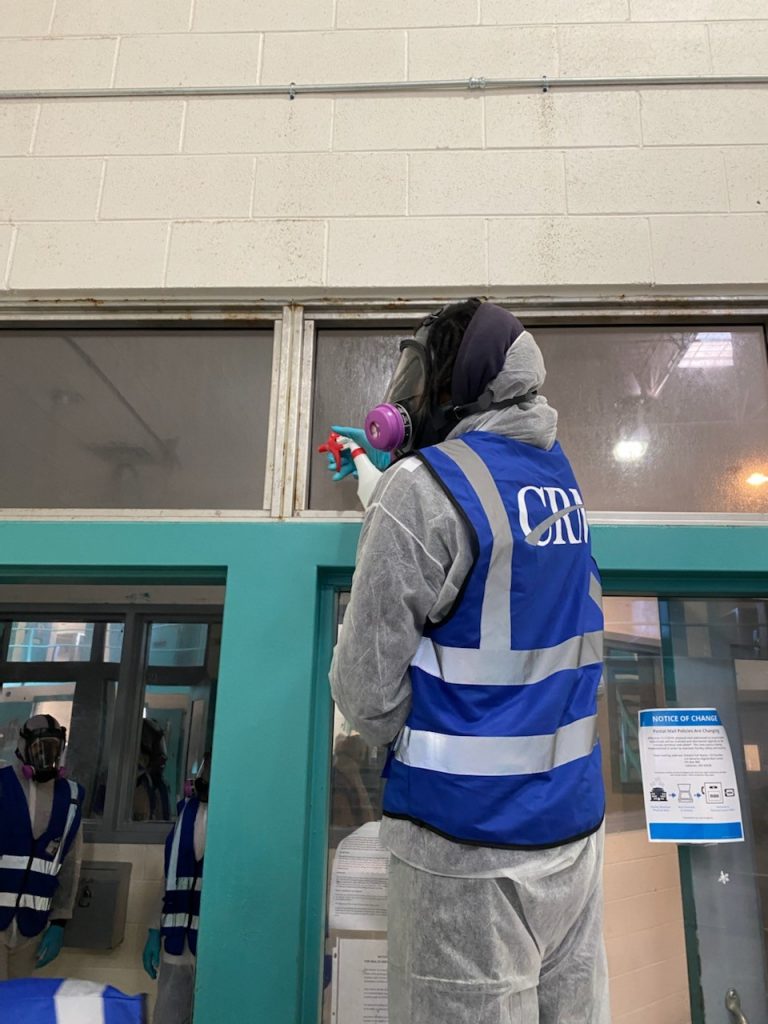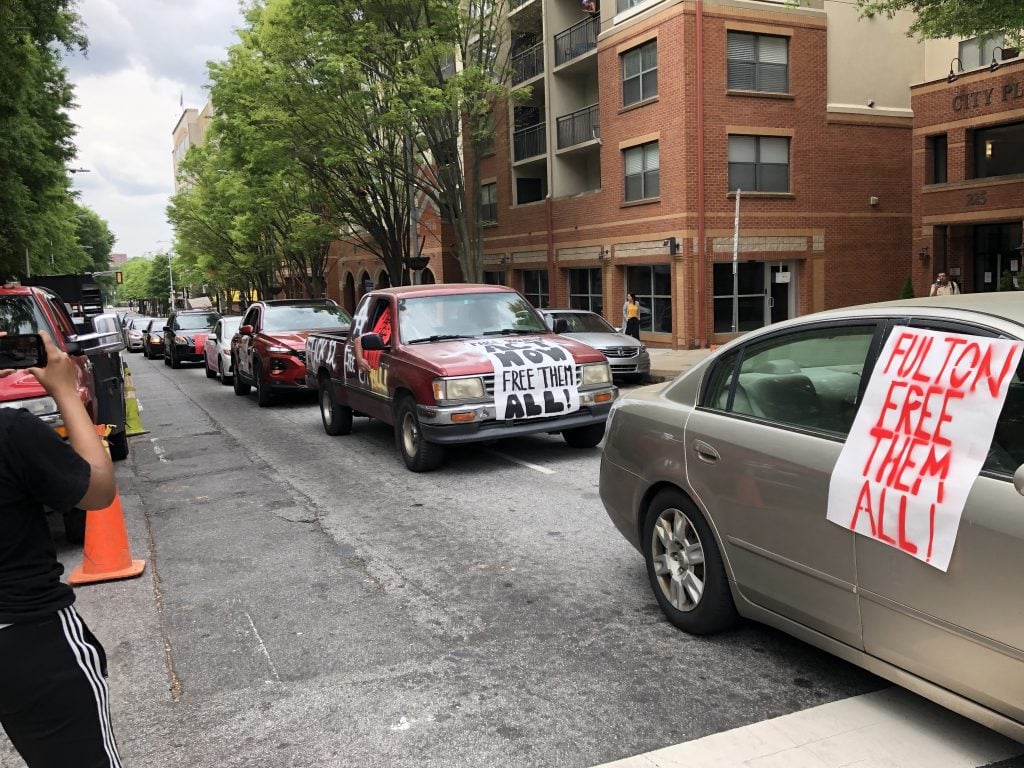Fear And Makeshift Masks: Surviving A Pandemic Inside Fulton County’s Jails

The Georgia House voted 95-81 Wednesday for a measure that would require cash or property bail for 31 additional crimes, including some misdemeanors.
David Goldman / Associated PRess file
Fulton County Jail officials have reported that a total of 16 inmates have had confirmed cases of COVID-19. They now say only 12 are active and being treated on-site. The sheriff’s office says they’re all improving.
Officials there say the virus is under control. But for those who are locked up, fears are running high.
Kenya Anderson was arrested in College Park on nonviolent drug charges, mostly for marijuana. She was booked in early March. People were still eating in restaurants then.
She, and the seven women she’s in a cell with, have had to piece together the drastic changes in our world from their loved ones outside.
“But we did know something because the guards started wearing masks. Then more and more of them were wearing masks and hazmat suits when they come into the facility,” said Anderson. “It was very scary. It was unimaginable to see them in protective gear, and we’re walking around here just exposed.”
She’s 35 years old. She said three of the women she’s in with are in their 60s. They’ve been trying to make makeshift masks out of their T-shirts, underwear, menstrual pads, anything. They have small bars of soap, but no hand sanitizer. Anderson says she can hear coughing around her.
Asked if it’s possible to keep 6 feet away from people, she said, “No ma’am.”
Advocacy groups like the Southern Center for Human Rights say the jail was significantly understaffed before the pandemic, and they’re worried about what will happen if the coronavirus takes hold there.
Anderson is not in Fulton County’s most crowded jail facility on Rice Street.
There, 600 staff members come in and out on shifts, managing more than 2,200 inmates, according to the sheriff’s office. That main jail facility has been under rounds of federal oversight for more than a decade as Fulton County worked to renovate, decrease overcrowding and improve medical care.
Physician Robert Greifinger was the court-appointed monitor for much of that time.
“Yeah, the main takeaway is that it’s unstoppable,” he said.
In a recently issued declaration about Fulton County Jail and the potential spread of COVID-19, he said there are no procedural changes that can contain an outbreak there.
“It’s inevitable that congregate settings, nursing homes, just like cruise ships and jails and prisons, are going to be focuses of widespread infection unless we thin out the population,” said Greifinger.
He said Atlanta’s criminal justice officials need to do that with “extreme speed,” or risk overwhelming local hospitals.

The Fulton County Sheriff’s Office said in a statement that “the jail division is making every effort to prevent the spread of the virus.” Their policy is to provide masks only to symptomatic inmates.
Fulton County District Attorney Paul Howard says he’s been coordinating with law enforcement and courts since early March to reduce the jail population.
“We really have to be careful to make sure that the public is protected, but based upon what I have seen to this point, this has really gotten the attention of a lot of people in the county, and I believe that we should be able to handle this crisis,” said Howard.
He told WABE this week his office began the staggered release of about 300 inmates. Some are over 60, others are in for ordinance or probation violations. They’re all to be given ankle monitors and curfews.
Howard says the stakes of releasing the wrong people are high. Add to that, nearly 200 inmates who should be serving time in state prisons, which have now stopped accepting prisoners.
“We believe that the state is in a much better position to handle those inmates because the state has other facilities around the state,” he said.

For activist groups in Atlanta, the county is moving too slowly.
On Tuesday, law enforcement briefly shut down the street around District Attorney Howard’s office as dozens of demonstrators circled the block in cars painted and draped with banners like: “Fulton County’s Inaction = Death Sentence.”
Some jails around the country began releasing hundreds of inmates as early as mid-March. New York City had released 900 people more than two weeks ago.
Meanwhile, in Fulton County’s Union City Jail, Kenya Anderson feels like the district attorney is taking his time because he’s not in jail.
“We understand that we aren’t all innocent, and I take full responsibility for my actions, but, come on now. This is a crucial time,” said Anderson.
Just before time ran out on the call, she made a small joke, imitating Djimon Hounsou’s character in the movie “Amistad”: “Let us free.”
She said they have no choice but to try to survive with humor.
“At first, we were all arguing,” said Anderson. “But we’re trying to stick together and see what else we can do. This phone is our only weapon.”
Paul Howard says he’s open to recommending more releases after he sees the current process play out.








